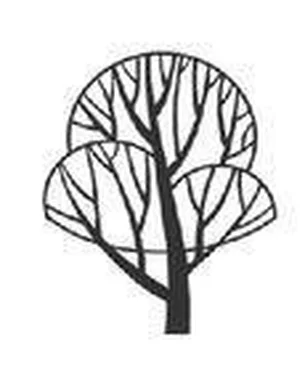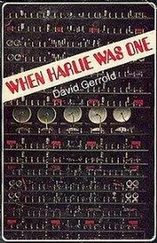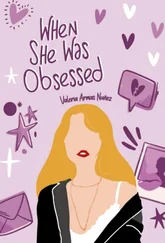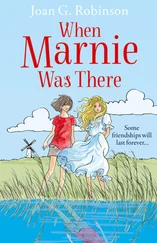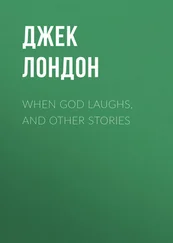Winman, Sarah - When God Was a Rabbit
Здесь есть возможность читать онлайн «Winman, Sarah - When God Was a Rabbit» весь текст электронной книги совершенно бесплатно (целиком полную версию без сокращений). В некоторых случаях можно слушать аудио, скачать через торрент в формате fb2 и присутствует краткое содержание. Жанр: Старинная литература, на английском языке. Описание произведения, (предисловие) а так же отзывы посетителей доступны на портале библиотеки ЛибКат.
- Название:When God Was a Rabbit
- Автор:
- Жанр:
- Год:неизвестен
- ISBN:нет данных
- Рейтинг книги:4 / 5. Голосов: 1
-
Избранное:Добавить в избранное
- Отзывы:
-
Ваша оценка:
- 80
- 1
- 2
- 3
- 4
- 5
When God Was a Rabbit: краткое содержание, описание и аннотация
Предлагаем к чтению аннотацию, описание, краткое содержание или предисловие (зависит от того, что написал сам автор книги «When God Was a Rabbit»). Если вы не нашли необходимую информацию о книге — напишите в комментариях, мы постараемся отыскать её.
When God Was a Rabbit — читать онлайн бесплатно полную книгу (весь текст) целиком
Ниже представлен текст книги, разбитый по страницам. Система сохранения места последней прочитанной страницы, позволяет с удобством читать онлайн бесплатно книгу «When God Was a Rabbit», без необходимости каждый раз заново искать на чём Вы остановились. Поставьте закладку, и сможете в любой момент перейти на страницу, на которой закончили чтение.
Интервал:
Закладка:
‘But you didn’t want to go?’ I said, rushing the story ahead to territory I knew nothing about.
‘No I didn’t. But then I remembered I wanted to check out their renovations, because I’ve got my eye on a new place and I need an architect; which is also another story because I want you to come and see this house with me tomorrow.’
‘OK, OK, I will,’ I said, and drank a large mouthful of vodka, feeling its flush in my head. ‘Now continue,’ I said.
A string quartet was playing in the walled garden and he sat outside most of the evening, gladly cornered by an older gentleman called Ray, who talked to him about the riots of ’69, and told him of suppers spent with Katharine Hepburn and Marlene, whom he used to know because he was involved in wardrobe at MGM and because he had association with von Sternberg too, because of his own German lineage (mother’s side). And then the light faded and candles arrived, filling the atmosphere with scents like tea and jasmine; fig, too. People deserted as the music stopped, headed indoors to hear the results of the auction and to sample the Japanese buffet orchestrated by the events caterer du jour . And that’s how they found themselves alone. There was no inappropriate suggestion, just the quiet familiarity of evenings he used to spend with Arthur, when they talked about Halston and Warhol and those seventies parties whose themes were as blurred as the preferences of the guests.
And then a man approached down the fire escape. A young man, it seemed, in the candlelit night; less young as he approached. But Ray looked over to him and smiled and said, ‘And who might you be, handsome young brave?’ and the man laughed and said, ‘My name is Charlie Hunter. How’re you doing, Joe?’
The waiter placed the second round of martinis down. I was hungry. I ordered extra olives.
They crammed years into those remaining hours before they tumbled out onto the sidewalks of the Village and wandered back to SoHo, happy and drunk and disbelieving. They spent the weekend at Joe’s apartment, cocooned in movies and take-out boxes and beer, and voraciously ate away at the years, the lost years that had defined one another’s name. And that’s when Charlie told him he shouldn’t have been at the party either. He should have been back home in Denver, but his flight had been delayed and a meeting had suddenly come up for Monday, and a business colleague he knew only as Phil had said, ‘Stay – there’s this party,’ and so he’d stayed and hadn’t seen Phil since; not since he’d left him by the silent auction, bidding for a dinner for two at the Tribeca Grill with an unknown celebrity.
Joe downed the remainder of his glass. ‘And guess what, Ell? I think he’s going to move to New York for good.’
And that’s when I really thought I’d asked if they’d become lovers; but maybe I hadn’t because I couldn’t remember, because that was when we ordered the third martini, the third martini that seemed such a good idea at the time; the third martini that stayed in my mouth as I awoke to that piercing sunlight and a brother standing on one leg, holding a double macchiato, pretending to be an Aborigine.

The townhouse was nestled in the heart of the Village in a tree-lined street that was quiet and strangely remote, considering it was only a street away from Bleecker and two from Washington Square. We could see the realtor up ahead talking on the phone, standing next to a large ailanthus tree that offered little shade against the draining afternoon sun.
We ran the last fifty yards to meet him, a sudden race, a ready-set-go, which I won, because I reached and touched the black iron handrail first. The realtor seemed bemused; we looked hot and sweaty and, most of all, poor; as if we couldn’t even raise the price of a hot dog between us, let alone prime New York real estate.
The odour from the ailanthus became strong as we climbed up the steps to the front door, and as we entered it mingled with the smell of damp, a smell the realtor immediately assured was only a slight problem, rather than the structural signifier we both imagined. It was dark as we entered, thankfully unfurnished, and the rooms were concealed behind wooden shutters, which stalled midway as they were pulled back, refusing to offer light beyond the realms of dusk. The house was rather poky inside, with a cumbersome layout that mimicked a chicken run. Walls were plastered with striped paper, an orange and brown and black theme throughout, with dark oak balustrades clumsily painted and now hidden behind the heavy gloss of mocha stain. I traversed the hallway and followed its narrow ascent to the upper two floors, the highest one nursing a hole and a bird’s nest, and then precariously down to the kitchen and the small uninspiring garden beyond, which was landscaped with weeds and knee-high ailanthus trees, the seeds having been blown in from the front. There was so much wrong with this house, so much to do; but as I stood there, my brother secretly pointing to his watch, I immediately understood the layout, the how-it-should-have-been all those years ago, and the how-it-could-be now. And when my brother asked, ‘Well?’ with no enthusiasm in his voice, I said, ‘I love it.’ And I really did.
We got back just before six. I showered quickly and dressed; hid my nerves behind an article I needed to finish for the following day. It was a pitch, actually, a pitch for a regular column in a weekend newspaper which I’d hastily (and unimaginatively) entitled ‘Lost and Found’ – a name that would eventually and surprisingly stick. It was to be the story of Jenny Penny and her return to my life; stories cemented together by our correspondence and the memories of our past. And when I’d nervously written to her suggesting such an idea, asking for her opinion and maybe later her permission, I received a resounding Yes! by return of post, together with the new fictitious name I’d asked her to choose, to protect her fragile yet willing identity.
The buzzer rang; I wasn’t finished. The buzzer rang and my brother shouted from his bedroom. I opened the front door and stood a few feet back. I suddenly remembered the towel around my head and pulled it off, throwing it over the back of a chair, letting my hair fall damp, unruly, free. I felt anxious. Wondered how he would enter. Would he run in shouting, happy to see me? Or simply knock? I heard his footsteps, heard him pause. And then he did neither; simply pushed the door gently and stuck his head round and smiled, and said, ‘Hello, Ell, how’re you doing?’
The dark features were the same, the smile the same, but his voice had lost the flat Essex tones I could still remember. And he’d brought champagne. We were going out but he’d brought champagne because it was a moment for champagne, and he stood there with his hands on his hips and said, ‘You haven’t changed,’ and I said, ‘You neither,’ and we embraced, and he was still holding the champagne bottle as we embraced, and I felt it cold and hard against my back.
My brother came out to the sound of the cork popping. He came out still wet from the shower, wearing his choir T-shirt, a pink T-shirt that had ‘The Six Judys’ written on the front above a line drawing of that famous dame. And then underneath in smaller type: ‘We’ll Sing for your Supper’. It was something they did every time, had a new T-shirt printed for each new charity they supported. One year, they’d supported an elderly group and the T-shirt had said: ‘You’re Never Too Old to Sing’. This time, though, it was food for the homeless, and the provision of a new catering van.
Читать дальшеИнтервал:
Закладка:
Похожие книги на «When God Was a Rabbit»
Представляем Вашему вниманию похожие книги на «When God Was a Rabbit» списком для выбора. Мы отобрали схожую по названию и смыслу литературу в надежде предоставить читателям больше вариантов отыскать новые, интересные, ещё непрочитанные произведения.
Обсуждение, отзывы о книге «When God Was a Rabbit» и просто собственные мнения читателей. Оставьте ваши комментарии, напишите, что Вы думаете о произведении, его смысле или главных героях. Укажите что конкретно понравилось, а что нет, и почему Вы так считаете.
